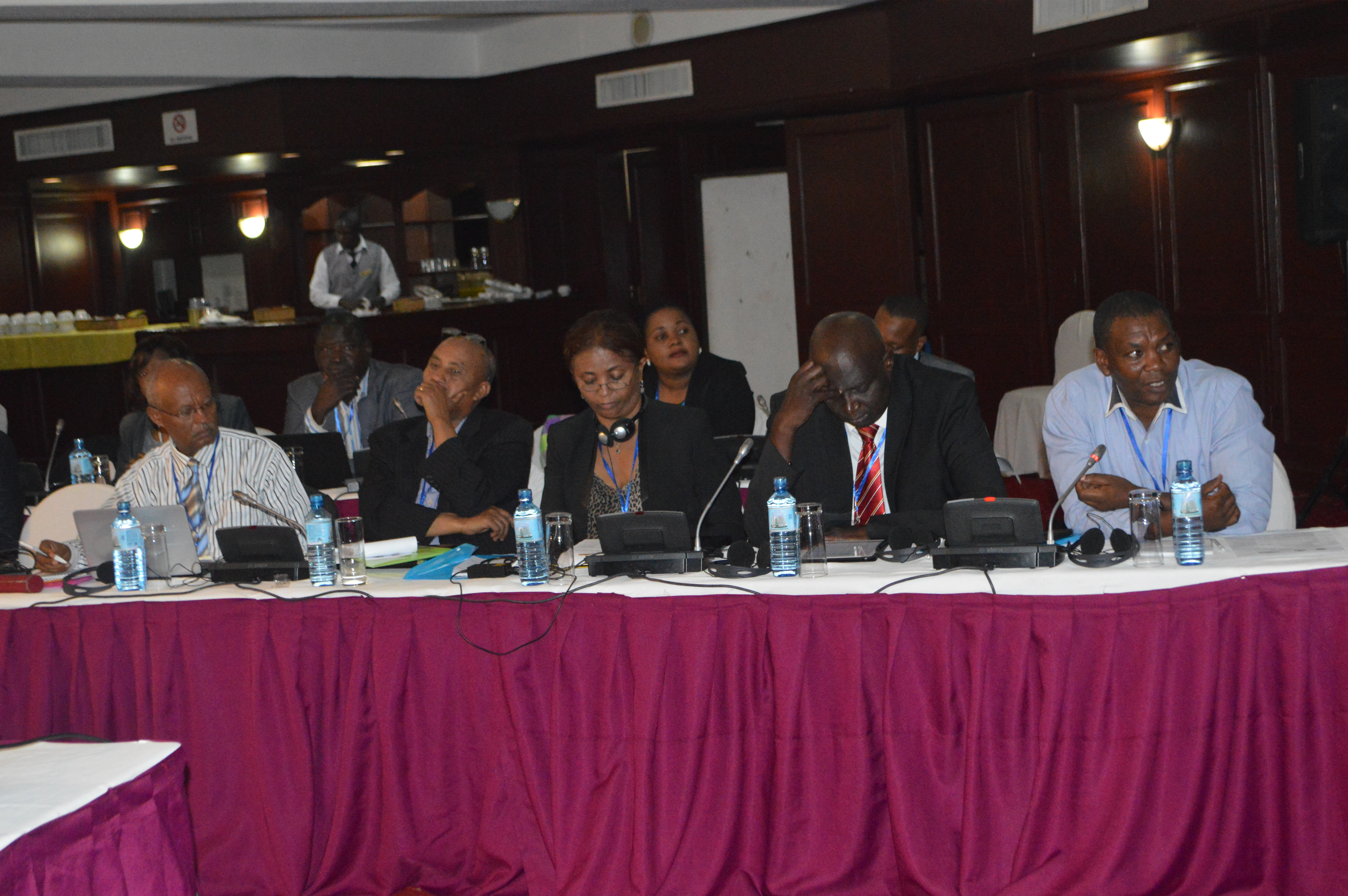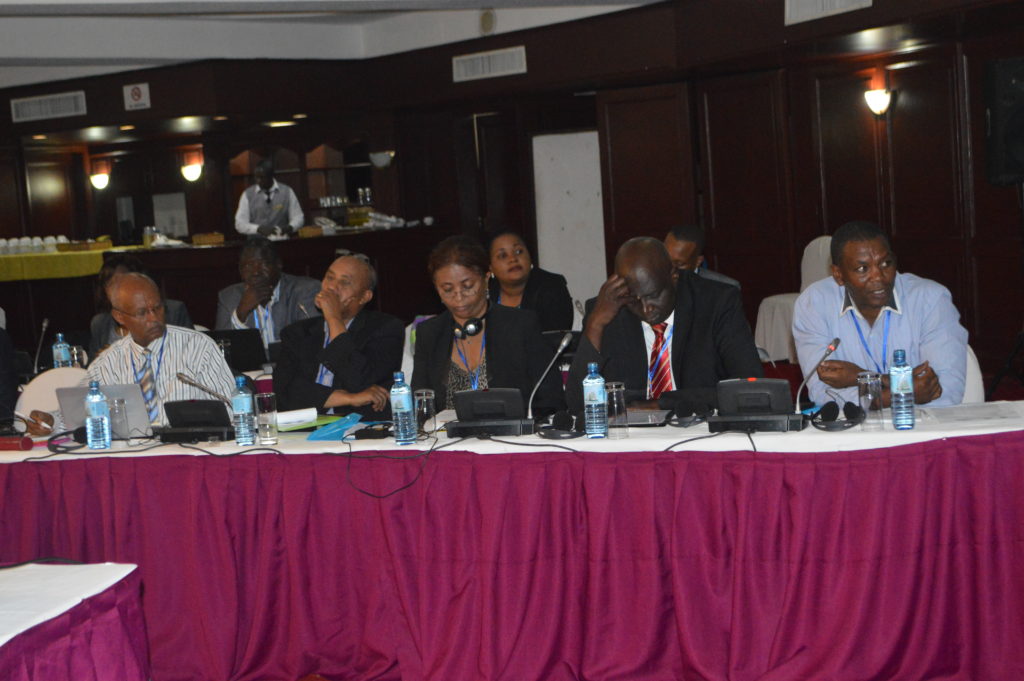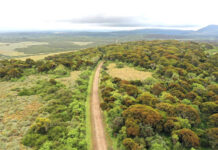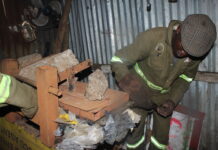By Winnie Kamau
A heated argument about hosting the Regional Coordination Unit (RCU) in Morocco ensued during a recent meeting in Nairobi for the Africa Group of Negotiators in Combating Dessertication. The experts were divided on the view of hosting the Unit in Morocco citing that Member States of Africa had not been widely consulted while others wanted the Unit to be housed in African Union.
In 2015 biennial UNCCD COP12 in Ankara through a letter from the Kingdom of Morocco was the only African country that had offered to host the Regional Coordination Unit (RCU) of the or the United Nations Convention to Combat Desertification (UNCCD).
However this was received with mixed reactions by the Group of experts drawn from over 10 countries -Morocco, Kenya, Malawi, Democratic Republic of Congo, Ethiopia, Eritrea, Uganda, Swaziland, South Africa, Ivory Coast, Sierra Leone and Nigeria.
This was seen as a great solution for UNCCD as they were looking for an office based in Africa following offers from China and Europe. If the offer was accepted it would have brought the twelve year search for an office to an end.
The Regional Coordination Unit famed as RCU once it is set up it would provide technical support to the African Countries to implement the Desertification Convention which is part of the 3 Conventions formed in the 1992 RIO Earth Summit including Climate change and Biodiversity.
Unfortunately the two conventions Desertification and Biodiversity have lagged behind as Climate change shoots through to implement its strategies and also host boisterous annual summits – Conference of Parties (COP). This many experts peg it to alot of funding from developed countires who have the financial muscles.
Almami Dampha, Senior Policy Officer, Forestry and Land Management at the African Union Commission explains.
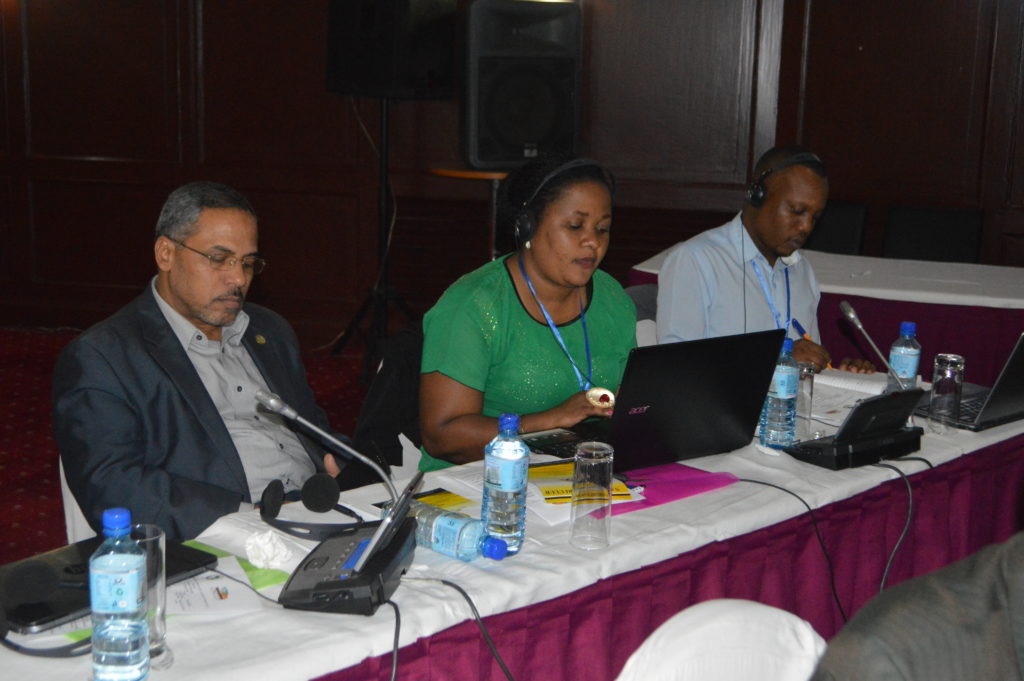 The highlights of UNCCD meetings are around areas of various reports on the organs of the UNCCD convention, for example the Committee on the Review of the implementation of the convention (CRIC), COP Bureau, Committee on Scientific Training (TSC) and RCU all which have a critical role in operations of UNCCD towards combating desertification and land degradation “We realize the fact that COPs have taken over and we are not heard that much, but we have hopes things will change with time.”
The highlights of UNCCD meetings are around areas of various reports on the organs of the UNCCD convention, for example the Committee on the Review of the implementation of the convention (CRIC), COP Bureau, Committee on Scientific Training (TSC) and RCU all which have a critical role in operations of UNCCD towards combating desertification and land degradation “We realize the fact that COPs have taken over and we are not heard that much, but we have hopes things will change with time.”
But in a twist of events this offer was not received well by the African experts. From Uganda’s UNCCD Focal point Stephen Muwaya rejected the offer citing long distance “Cost of reaching Morocco is prohibiting”, while Nigeria’s Focal point sought for the letter requesting to host the Unit that had been sent to African countries and the recorded feedback to be tabled.
Many Countries represented were of the view the Unit should be hosted by the African Union which united Africa. The offer on the table read by the Ambassador of Morocco to Kenya Abdelilah Benryane stated – they will provide an office located in Rabat which is the Capital city and the Kingdom also offered two staff that would report to UNCCD pending recruitment of other staff from the African countries.
But trouble would brew if the African Union was to host the RCU since the Kingdom of Morocco withdrew from the African Union in 1984 following unresolved disagreement. The offer by Morocco is on the basis of their role as members of the United Nations Convention.
During an interview with Moroccan Ambassador Benryane cited the offer was the good will by His Majesty King Mohammed VI who wants to make Africa top in its diplomatic actions “Our desire and proposal to host RCU for Africa is animated by genuine desire to make our African sisters and brothers take advantage of the expertise that Moroccan experts have developed” Benryane noted that the Kingdom of Morocco was slowly opening up to the rest of Africa this despite the Arab Spring. The stability of the Kingdom of Morocco has been a great attraction to the North, no wonder it will be hosting the COP22 in Marrakech following a successful COP21 held in Paris last year.
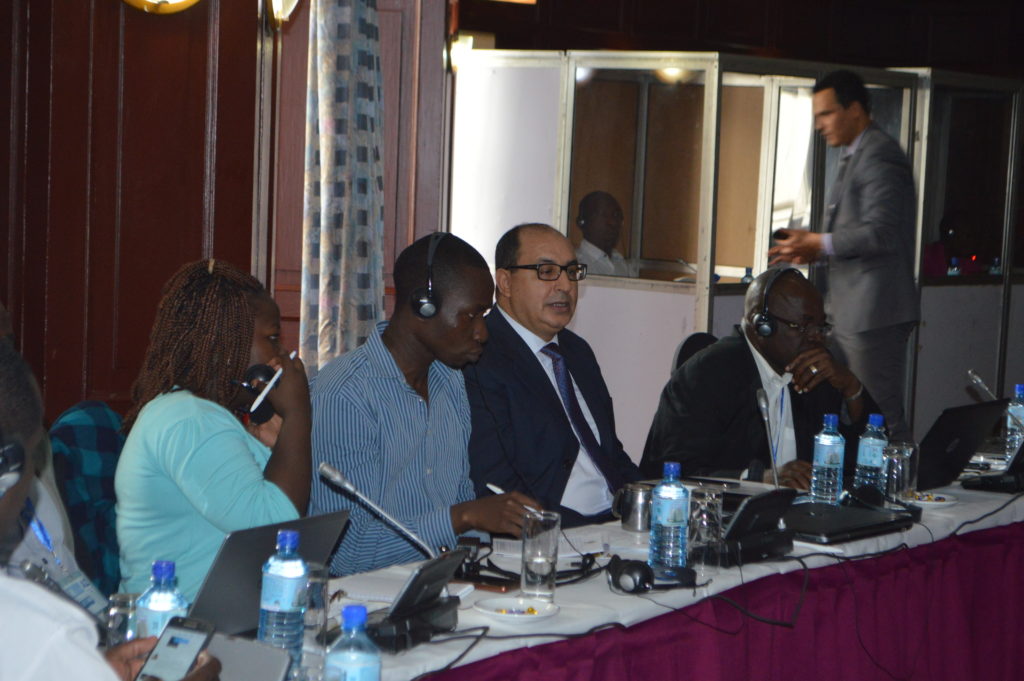
Benryane beams of one Moroccan success in oepning up to Africa in opening an airline route to East Africa “We are encouraged by the fact that in March this year we started direct flights between Nairobi and Casablanca” adding “Morocco is opening up to its sisterly African countries slowly but steadly.”
Berlin based Coordinator of the RCU at UNCCD, Boubacar Cisse welcomed the offer by the Kingdom of Morocco citing .“The Unit of the UNCCD secretariat established in the region will provide technical support to the African countries and stakeholders for the implementation of the convention”. Cisse noted that COP on Desertification ten year strategy was coming to an end in 2018 and there’s’ need to rethink the strategy. “Parties are thinking of what to replace the 10 year strategy and the SDG15.3 states combating desertification and achieving Land degradation neutrality will be implemented by UNCCD”.
Cisse encouraged unity among the focal points of the convention on the national level. The program on Desertification is tackled on three levels following National action programs prepared by countries to combat desertification, at the national level, in sub – regional levels and the continental level with ultimate support in the National level.
Patrick Isine a former Focal point member from Nigeria noted with a lot of concern about the biggest challenge for the Desertification convention being resources .“one convention has more resources than the other” he said.
The African Group of negotiators chaired by Kenya’s Richard Mwendandu directed that all parties in Africa will be notified of the offer and a decision would be reached in October 2016 during the Committee on the Review on the implementation of the Convention (CRIC) which will be hosted by Kenya. Mwendandu assured the Negotiators Kenya was looking forward to hosting the event and the Government had committed 100,000 USD for the success of the meeting.

